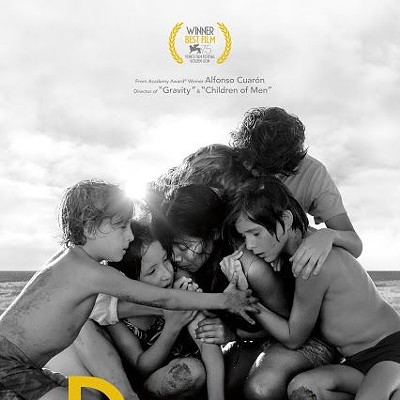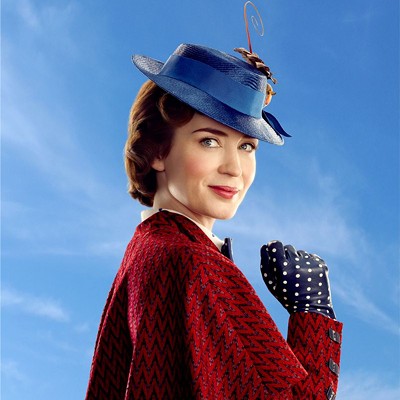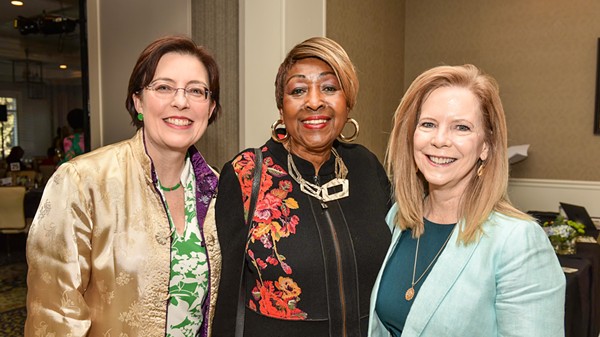Now Showing
[
{
"name": "Air - MedRect Combo - Inline Content 1",
"component": "14680855",
"insertPoint": "7",
"requiredCountToDisplay": "5",
"parentWrapperClass": "fdn-ads-inline-content-block"
},{
"name": "Air - MedRect Combo - Inline Content 2",
"component": "14680856",
"insertPoint": "15",
"requiredCountToDisplay": "9",
"parentWrapperClass": "fdn-ads-inline-content-block"
},{
"name": "Air - SVP - Leaderboard - Inline Content - 2",
"component": "16852291",
"insertPoint": "10",
"requiredCountToDisplay": "10",
"parentWrapperClass": "fdn-ads-inline-content-block"
},{
"name": "Air - SVP - Leaderboard - Inline Content - 3",
"component": "16852292",
"insertPoint": "20",
"requiredCountToDisplay": "18",
"parentWrapperClass": "fdn-ads-inline-content-block"
},{
"name": "Air - SVP - Leaderboard - Inline Content - 1",
"component": "16852290",
"insertPoint": "25",
"requiredCountToDisplay": "22",
"parentWrapperClass": "fdn-ads-inline-content-block"
}
]
FUN WITH DICK AND JANE PP 1/2
The 1977 original employs two actors of marginal comedic abilities -- Jane Fonda and George Segal -- in a lumbering yarn about a well-to-do married couple who turn to crime once the husband loses his job. This new version one-ups its predecessor right out of the starting gate by casting two bona fide comedians in the central roles. Jim Carrey and Tea Leoni play the new Dick and Jane, who find themselves in a similar predicament once the CEO (Alec Baldwin) of Dicks company bails out, leaving thousands of employees without jobs, pensions or benefits. After working a series of low-paying odd jobs (the pictures funniest sequences), the couple eventually turn to robbing local shops with a squirt gun, earning enough dough to engage in even more elaborate heists. Softballs are briefly lobbed at former Enron CEO Ken Lay and George W. Bush, the two men most emblematic of the greed that continues to divide the haves from the have-nots, but otherwise, this is strictly a congenial, end-of-year trifle aimed at providing families with somewhere to go after all the presents have been opened.
MUNICH PPP
A strong film, an important work, and already a lightning rod for controversy and (one hopes) healthy debate. But another instant Steven Spielberg classic? Not quite. With a script drafted by heavy-hitters Tony Kushner (Angels In America) and Eric Roth (Forrest Gump), Munich is largely a fictionalization of the events that transpired after that tragic day at the 1972 Olympics in Germany, when a group of Palestinian terrorists known as Black September slaughtered the Israeli athletes they were holding as hostages. The movie reveals that, in an effort to exhibit their toughness to the world, the Israeli government sent a select band of assassins to eliminate everyone who was responsible for the Munich massacre.
Spielberg and his writers bring to vivid life this motley crew of enforcers: Avner (Eric Bana), the sensitive leader of the group; the fiery getaway driver Steve (Daniel Craig, aka the new James Bond); the meticulous clean up man Carl (Ciaran Hinds); the jittery bomb maker Robert (Mathieu Kassovitz); and the pensive forger Hans (Hanns Zischler). But these characters arent positioned as Israels version of The Untouchables, with clear-cut visions of right and wrong. Instead, as they carry out each hit on their eye-for-an-eye agenda, each man reacts differently to the consequences of their actions. Spielbergs muddying of the moral waters is already drawing heat (primarily from Jewish leaders), but its to his credit that he asks the hard questions and doesnt flinch from any unsettling truths that might emerge. This is perhaps the least sentimental of any motion picture in the directors strong filmography, with a couple of scenes that stand among the most memorable hes created in recent times.
MEMOIRS OF A GEISHA PP1/2
Director Rob Marshalls adaptation of the Arthur Golden novel plays like a Disney version of a Zhang Yimou movie, though the end result isnt as dreadful as that designation might suggest. As movie artifice, its above average, but it goes no deeper than that. The cast features a whos-who of leading actors from the East, though because none are from Japan, the films been swallowed up in a maelstrom of controversy. Nationalities notwithstanding, the performers are up to the task at hand. Two Crouching Tiger, Hidden Dragon alumni handle the key roles: Ziyi Zhang plays Chiyo, the penniless foster child who grows up to become the legendary geisha known as Sayuri, while Michelle Yeoh essays the role of her mentor, Mameha. The Last Samurais Oscar nominee Ken Watanabe has the principal male role as the Chairman, the older man who catches Sayuris eye at an early (pre-pubescent) age and finds himself the center of her adoration over the ensuing years.
The struggles of these characters make for adequate screen entertainment, though the movie curiously mutes the tragic dimension of women being bartered over and sold like trinkets in an open-air marketplace.
THE PRODUCERS PPP
The Academy isnt exactly known for its embrace of comedy -- only in its humorless universe could Ben-Hur win the Best Picture Oscar in the year of Some Like It Hot -- but in the 1968 race, voters were in a giddy enough mood to hand the Best Original Screenplay Oscar to Mel Brooks for his comic gem, The Producers. Dont expect similar accolades for this latest version, since a funny thing happened on the way to the podium. Brooks commercial failure but cult success was resurrected by the comic legend himself as a Broadway musical, one so successful that it earned a record 12 Tony Awards to go along with its enormous box office booty. That a movie version would follow is no surprise; whats startling is how the picture plays as little more than a static filming of the stage play, barely more mobile than those one-set Shakespeare dramatizations that used to pop up regularly on PBS. In the Gene Wilder role of the timid accountant Leo Bloom, Matthew Broderick strains too hard to be funny -- you almost feel sorry for the guy, praying he doesnt give himself a hernia through all those pained expressions. Nathan Lane, on the other hand, is a riot in the Zero Mostel role of Max Bialystock, the struggling producer who determines that a dreadful show called Springtime for Hitler is his ticket to riches.
RUMOR HAS IT PP
Sarah Huttinger (Jennifer Aniston), a newspaper obituary writer who cant decide whether or not to marry her easy-going boyfriend (Mark Ruffalo), learns through a series of events that the best-selling novel The Graduate was based on the experiences of her own family. Over 30 years ago, both her mother (now deceased) and grandmother (Shirley MacLaine) had slept with Beau Burroughs (Kevin Costner), who in more recent times has become a billionaire thanks to the booming Internet trade (the movies set in 1997). Convinced that Beau can help her sort out her own ambivalent feelings regarding her family, she maneuvers to meet him in person, only to find that, like her mom and grandma before her, she cant resist his roguish charm. The hook turns out to be the most entertaining aspect of the film, as Sarah strives to learn exactly how all the pieces of the Graduate puzzle fit together. But once she becomes romantically entangled with Beau, the picture grinds to a halt, losing its comic conceit and getting bogged down in the mundanity of its older man-younger woman relationship. Director Rob Reiner then proceeds to make matters worse, repeatedly mistaking frantic for funny and basically turning these initially promising characters into gibbering idiots.
WOLF CREEKP
What could be more idiotic than releasing a foreign slasher flick in the high-profile summer movie season? How about releasing a foreign slasher flick on Christmas Day? This Australian import strands three college-age kids (Cassandra McGrath, Kestie Morassi and Nathan Phillips) in the Australian Outback, whereupon they meet a hulking roughneck (John Jarratt) who proceeds to slice and dice them as he sees fit. Wolf Creek bills itself as Based On Real Events, a dubious claim since the film is rife with the sort of boneheaded plotting that can only be found in subpar thrillers of this nature. As if releasing this on December 25 wasnt disturbing enough, theres also a scene in which one of the young protagonists finds himself attached to a wall crucifix-style, with his arms outstretched and nails hammered through the palms of his hands. Father, forgive them, for they clearly know not what they do.
KING KONG PPP1/2
Peter Jacksons new Kong will make a fortune, and it saddens me that it will be viewed by scores of people who wont even give the original 1933 take a passing glance because they lack the imagination to immerse themselves in the world of vintage black-and-white cinema. But thats their loss, and certainly not Jacksons fault. Hes done his part by treating the property with love and respect, and, much to my surprise, his Kong is a -- pardon the pun -- roaring success. In essence, Jackson has taken the 103-minute original and stretched it out to a 190-minute running time. The three-act structure remains intact, however. The first portion of the film details how visionary filmmaker Carl Denham (Jack Black) elects to head out into uncharted waters to make his epic adventure movie, recruiting a struggling actress named Ann Darrow (Naomi Watts) to serve as his leading lady. Denham is all business, meaning that Anns romantic escapades arrive in the form of Jack Driscoll (Adrien Brody), a sensitive screenwriter with the heart of a poet but the steely resolve of an action hero. The second part charts the sea voyage and the arrival on Skull Island, whereupon Ann is co-opted by the local natives for the purpose of serving as a human sacrifice to the great ape known as Kong. The climactic third act finds Kong captured and taken to New York, where, billed as King Kong, The Eighth Wonder of the World, he becomes the featured attraction in Denhams lavish theatrical production. Naturally, Kong escapes and goes on a rampage. From there, its a quick jaunt up the Empire State Building and an even quicker trip back down. Despite a hefty $200 million budget, the films visual effects arent as seamless as one might expect, particularly when it comes to the dinosaurs. Yet the FX team comes through when it matters most: Kong himself is a visual marvel, with an expressive range of emotions, and the final battle between Kong and the fighter planes is one of the movie years defining spectacles. Jack Blacks turn as showman Carl Denham is especially memorable, even if I still prefer Robert Armstrongs show biz bluster in the original over Blacks more Machiavellian demeanor. Ultimately, Jackson respects that King Kong is above all else a love story -- thats why Fay Wray is remembered so fondly from the original picture, and why Naomi Watts will emerge the most triumphant from this new version. Watts plays her scenes opposite Kong beautifully, and its a measure of her skills as an actress that she generates enormous chemistry with an animal thats created out of computer codes rather than flesh and blood.
THE CHRONICLES OF NARNIA: THE LION, THE WITCH AND THE WARDROBE PPP
Christians, heathens and everyone in between will be inspired to hold hands and sway to the gentle rhythms of The Chronicles of Narnia: The Lion, The Witch and the Wardrobe. C.S. Lewis source material -- the first book in a series of seven Narnia adventures -- sprinkled Christian allegories throughout a fantasy yarn that was aimed primarily at children, and the movie steadfastly respects Lewis intentions. Like the best kid flicks, this one never talks down to its target audience, and its religious themes -- issues involving honor, forgiveness and redemption -- embody the true spirit of Christianity and in effect serve as an antidote to the sadistic theatrics of Mel Gibsons garish snuff film, The Passion of the Christ. Lewis and The Lord of the Rings author J.R.R. Tolkien were friends and contemporaries, so its not surprising that the films based on their respective works often resemble each other in style and structure. In fact, Id wager that it took the massive success of the LOTR flicks for Narnia to even be given the green light. Therefore, its easy to see the plucky Pevensie children -- Peter (William Moseley), Susan (Anna Popplewell), Edmund (Skandar Keynes) and little Lucy (Georgie Henley) -- as human Hobbits, bravely entering enemy territory to defeat an evil entity whose cruel reign threatens all sorts of races and civilizations. Director Andrew Adamson, coming off the Shrek toons, isnt as accomplished a filmmaker as Peter Jackson, so his tale feels cramped and on occasion even claustrophobic (cinemas widescreen possibilities appear to hold little interest for him). But the child actors are appealing, Swinton makes a suitably chilly ice queen, the supporting critters add color, and the brisk storyline fuels the imagination. It may be kid stuff, but its suitable for the whole family.
THE FAMILY STONE PP1/2
Initially more reminiscent of the brittle Thanksgiving yarns Home For the Holidays and Pieces of April than the warm-and-fuzzy titles usually foisted upon us at Christmas, this ensemble piece centers on the Stone family, a liberal New England clan whose members prove to be remarkably close-minded when it comes to accepting a conservative prude into their abode. Oldest son Everett (Dermot Mulroney) brings girlfriend Meredith (Sarah Jessica Parker) home to meet his parents (Diane Keaton and Craig T. Nelson) and siblings, but except for his laidback brother Ben (Luke Wilson), all the family members -- especially bitchy sister Amy (Rachel McAdams) -- treat their guest poorly, finding it impossible to warm up to her sheltered viewpoints and physical eccentricities. The arrival of Merediths younger sister Julie (Claire Danes) only makes matters worse, as shes everything (warm, witty, understanding) that her sister is not. Writer-director Thomas Bezucha tips his PC hand early by making one family member (Ty Giordano) deaf, gay and attached to a black lover (Brian White), but he nevertheless manages to make the various strained character interactions believable.
SYRIANA PPP
Bob Barnes (George Clooney) is a CIA field operative whos stunned when his years of service count for naught once his superiors decide its in their best interest to betray him. Syriana offers little hope and no answers, catering instead to the substantial number of Americans who feel that the bad guys -- chiefly, Big Business and Big Government -- have already won, and theres not a damn thing we ordinary citizens can do about it. For those who already believe this, the movies a well-executed downer. For those seeking to educate themselves, the movies a must-see.
AEON FLUX P1/2
An impersonal slab of sci-fi sameness, Aeon Flux wears its lethargy as a badge of honor, with Karen Kusamas draggy direction and Charlize Therons monotonous performance front and center in every scene.
RENT PPP
Puccini wrote his opera La Boheme in 1896, and it was exactly 100 years later that Jonathan Larsons update Rent created seismic waves in the theater world. Rent faithfully follows the story structure of La Boheme, although Larson injected a sense of immediacy by adding AIDS to the equation. Unfolding in the late 80s, the story centers on a group of bohemians in New Yorks East Village. If it sounds like Melrose Place on welfare, the storys defining characteristic is that half of its leading players are HIV-positive, contracted through either sex or drug use. For a musical, there isnt much dancing per se, and director Chris Columbus and choreographer Keith Young stage the few numbers competently if not excitingly.
The 1977 original employs two actors of marginal comedic abilities -- Jane Fonda and George Segal -- in a lumbering yarn about a well-to-do married couple who turn to crime once the husband loses his job. This new version one-ups its predecessor right out of the starting gate by casting two bona fide comedians in the central roles. Jim Carrey and Tea Leoni play the new Dick and Jane, who find themselves in a similar predicament once the CEO (Alec Baldwin) of Dicks company bails out, leaving thousands of employees without jobs, pensions or benefits. After working a series of low-paying odd jobs (the pictures funniest sequences), the couple eventually turn to robbing local shops with a squirt gun, earning enough dough to engage in even more elaborate heists. Softballs are briefly lobbed at former Enron CEO Ken Lay and George W. Bush, the two men most emblematic of the greed that continues to divide the haves from the have-nots, but otherwise, this is strictly a congenial, end-of-year trifle aimed at providing families with somewhere to go after all the presents have been opened.
MUNICH PPP
A strong film, an important work, and already a lightning rod for controversy and (one hopes) healthy debate. But another instant Steven Spielberg classic? Not quite. With a script drafted by heavy-hitters Tony Kushner (Angels In America) and Eric Roth (Forrest Gump), Munich is largely a fictionalization of the events that transpired after that tragic day at the 1972 Olympics in Germany, when a group of Palestinian terrorists known as Black September slaughtered the Israeli athletes they were holding as hostages. The movie reveals that, in an effort to exhibit their toughness to the world, the Israeli government sent a select band of assassins to eliminate everyone who was responsible for the Munich massacre.
Spielberg and his writers bring to vivid life this motley crew of enforcers: Avner (Eric Bana), the sensitive leader of the group; the fiery getaway driver Steve (Daniel Craig, aka the new James Bond); the meticulous clean up man Carl (Ciaran Hinds); the jittery bomb maker Robert (Mathieu Kassovitz); and the pensive forger Hans (Hanns Zischler). But these characters arent positioned as Israels version of The Untouchables, with clear-cut visions of right and wrong. Instead, as they carry out each hit on their eye-for-an-eye agenda, each man reacts differently to the consequences of their actions. Spielbergs muddying of the moral waters is already drawing heat (primarily from Jewish leaders), but its to his credit that he asks the hard questions and doesnt flinch from any unsettling truths that might emerge. This is perhaps the least sentimental of any motion picture in the directors strong filmography, with a couple of scenes that stand among the most memorable hes created in recent times.
MEMOIRS OF A GEISHA PP1/2
Director Rob Marshalls adaptation of the Arthur Golden novel plays like a Disney version of a Zhang Yimou movie, though the end result isnt as dreadful as that designation might suggest. As movie artifice, its above average, but it goes no deeper than that. The cast features a whos-who of leading actors from the East, though because none are from Japan, the films been swallowed up in a maelstrom of controversy. Nationalities notwithstanding, the performers are up to the task at hand. Two Crouching Tiger, Hidden Dragon alumni handle the key roles: Ziyi Zhang plays Chiyo, the penniless foster child who grows up to become the legendary geisha known as Sayuri, while Michelle Yeoh essays the role of her mentor, Mameha. The Last Samurais Oscar nominee Ken Watanabe has the principal male role as the Chairman, the older man who catches Sayuris eye at an early (pre-pubescent) age and finds himself the center of her adoration over the ensuing years.
The struggles of these characters make for adequate screen entertainment, though the movie curiously mutes the tragic dimension of women being bartered over and sold like trinkets in an open-air marketplace.
THE PRODUCERS PPP
The Academy isnt exactly known for its embrace of comedy -- only in its humorless universe could Ben-Hur win the Best Picture Oscar in the year of Some Like It Hot -- but in the 1968 race, voters were in a giddy enough mood to hand the Best Original Screenplay Oscar to Mel Brooks for his comic gem, The Producers. Dont expect similar accolades for this latest version, since a funny thing happened on the way to the podium. Brooks commercial failure but cult success was resurrected by the comic legend himself as a Broadway musical, one so successful that it earned a record 12 Tony Awards to go along with its enormous box office booty. That a movie version would follow is no surprise; whats startling is how the picture plays as little more than a static filming of the stage play, barely more mobile than those one-set Shakespeare dramatizations that used to pop up regularly on PBS. In the Gene Wilder role of the timid accountant Leo Bloom, Matthew Broderick strains too hard to be funny -- you almost feel sorry for the guy, praying he doesnt give himself a hernia through all those pained expressions. Nathan Lane, on the other hand, is a riot in the Zero Mostel role of Max Bialystock, the struggling producer who determines that a dreadful show called Springtime for Hitler is his ticket to riches.
RUMOR HAS IT PP
Sarah Huttinger (Jennifer Aniston), a newspaper obituary writer who cant decide whether or not to marry her easy-going boyfriend (Mark Ruffalo), learns through a series of events that the best-selling novel The Graduate was based on the experiences of her own family. Over 30 years ago, both her mother (now deceased) and grandmother (Shirley MacLaine) had slept with Beau Burroughs (Kevin Costner), who in more recent times has become a billionaire thanks to the booming Internet trade (the movies set in 1997). Convinced that Beau can help her sort out her own ambivalent feelings regarding her family, she maneuvers to meet him in person, only to find that, like her mom and grandma before her, she cant resist his roguish charm. The hook turns out to be the most entertaining aspect of the film, as Sarah strives to learn exactly how all the pieces of the Graduate puzzle fit together. But once she becomes romantically entangled with Beau, the picture grinds to a halt, losing its comic conceit and getting bogged down in the mundanity of its older man-younger woman relationship. Director Rob Reiner then proceeds to make matters worse, repeatedly mistaking frantic for funny and basically turning these initially promising characters into gibbering idiots.
WOLF CREEKP
What could be more idiotic than releasing a foreign slasher flick in the high-profile summer movie season? How about releasing a foreign slasher flick on Christmas Day? This Australian import strands three college-age kids (Cassandra McGrath, Kestie Morassi and Nathan Phillips) in the Australian Outback, whereupon they meet a hulking roughneck (John Jarratt) who proceeds to slice and dice them as he sees fit. Wolf Creek bills itself as Based On Real Events, a dubious claim since the film is rife with the sort of boneheaded plotting that can only be found in subpar thrillers of this nature. As if releasing this on December 25 wasnt disturbing enough, theres also a scene in which one of the young protagonists finds himself attached to a wall crucifix-style, with his arms outstretched and nails hammered through the palms of his hands. Father, forgive them, for they clearly know not what they do.
KING KONG PPP1/2
Peter Jacksons new Kong will make a fortune, and it saddens me that it will be viewed by scores of people who wont even give the original 1933 take a passing glance because they lack the imagination to immerse themselves in the world of vintage black-and-white cinema. But thats their loss, and certainly not Jacksons fault. Hes done his part by treating the property with love and respect, and, much to my surprise, his Kong is a -- pardon the pun -- roaring success. In essence, Jackson has taken the 103-minute original and stretched it out to a 190-minute running time. The three-act structure remains intact, however. The first portion of the film details how visionary filmmaker Carl Denham (Jack Black) elects to head out into uncharted waters to make his epic adventure movie, recruiting a struggling actress named Ann Darrow (Naomi Watts) to serve as his leading lady. Denham is all business, meaning that Anns romantic escapades arrive in the form of Jack Driscoll (Adrien Brody), a sensitive screenwriter with the heart of a poet but the steely resolve of an action hero. The second part charts the sea voyage and the arrival on Skull Island, whereupon Ann is co-opted by the local natives for the purpose of serving as a human sacrifice to the great ape known as Kong. The climactic third act finds Kong captured and taken to New York, where, billed as King Kong, The Eighth Wonder of the World, he becomes the featured attraction in Denhams lavish theatrical production. Naturally, Kong escapes and goes on a rampage. From there, its a quick jaunt up the Empire State Building and an even quicker trip back down. Despite a hefty $200 million budget, the films visual effects arent as seamless as one might expect, particularly when it comes to the dinosaurs. Yet the FX team comes through when it matters most: Kong himself is a visual marvel, with an expressive range of emotions, and the final battle between Kong and the fighter planes is one of the movie years defining spectacles. Jack Blacks turn as showman Carl Denham is especially memorable, even if I still prefer Robert Armstrongs show biz bluster in the original over Blacks more Machiavellian demeanor. Ultimately, Jackson respects that King Kong is above all else a love story -- thats why Fay Wray is remembered so fondly from the original picture, and why Naomi Watts will emerge the most triumphant from this new version. Watts plays her scenes opposite Kong beautifully, and its a measure of her skills as an actress that she generates enormous chemistry with an animal thats created out of computer codes rather than flesh and blood.
THE CHRONICLES OF NARNIA: THE LION, THE WITCH AND THE WARDROBE PPP
Christians, heathens and everyone in between will be inspired to hold hands and sway to the gentle rhythms of The Chronicles of Narnia: The Lion, The Witch and the Wardrobe. C.S. Lewis source material -- the first book in a series of seven Narnia adventures -- sprinkled Christian allegories throughout a fantasy yarn that was aimed primarily at children, and the movie steadfastly respects Lewis intentions. Like the best kid flicks, this one never talks down to its target audience, and its religious themes -- issues involving honor, forgiveness and redemption -- embody the true spirit of Christianity and in effect serve as an antidote to the sadistic theatrics of Mel Gibsons garish snuff film, The Passion of the Christ. Lewis and The Lord of the Rings author J.R.R. Tolkien were friends and contemporaries, so its not surprising that the films based on their respective works often resemble each other in style and structure. In fact, Id wager that it took the massive success of the LOTR flicks for Narnia to even be given the green light. Therefore, its easy to see the plucky Pevensie children -- Peter (William Moseley), Susan (Anna Popplewell), Edmund (Skandar Keynes) and little Lucy (Georgie Henley) -- as human Hobbits, bravely entering enemy territory to defeat an evil entity whose cruel reign threatens all sorts of races and civilizations. Director Andrew Adamson, coming off the Shrek toons, isnt as accomplished a filmmaker as Peter Jackson, so his tale feels cramped and on occasion even claustrophobic (cinemas widescreen possibilities appear to hold little interest for him). But the child actors are appealing, Swinton makes a suitably chilly ice queen, the supporting critters add color, and the brisk storyline fuels the imagination. It may be kid stuff, but its suitable for the whole family.
THE FAMILY STONE PP1/2
Initially more reminiscent of the brittle Thanksgiving yarns Home For the Holidays and Pieces of April than the warm-and-fuzzy titles usually foisted upon us at Christmas, this ensemble piece centers on the Stone family, a liberal New England clan whose members prove to be remarkably close-minded when it comes to accepting a conservative prude into their abode. Oldest son Everett (Dermot Mulroney) brings girlfriend Meredith (Sarah Jessica Parker) home to meet his parents (Diane Keaton and Craig T. Nelson) and siblings, but except for his laidback brother Ben (Luke Wilson), all the family members -- especially bitchy sister Amy (Rachel McAdams) -- treat their guest poorly, finding it impossible to warm up to her sheltered viewpoints and physical eccentricities. The arrival of Merediths younger sister Julie (Claire Danes) only makes matters worse, as shes everything (warm, witty, understanding) that her sister is not. Writer-director Thomas Bezucha tips his PC hand early by making one family member (Ty Giordano) deaf, gay and attached to a black lover (Brian White), but he nevertheless manages to make the various strained character interactions believable.
SYRIANA PPP
Bob Barnes (George Clooney) is a CIA field operative whos stunned when his years of service count for naught once his superiors decide its in their best interest to betray him. Syriana offers little hope and no answers, catering instead to the substantial number of Americans who feel that the bad guys -- chiefly, Big Business and Big Government -- have already won, and theres not a damn thing we ordinary citizens can do about it. For those who already believe this, the movies a well-executed downer. For those seeking to educate themselves, the movies a must-see.
AEON FLUX P1/2
An impersonal slab of sci-fi sameness, Aeon Flux wears its lethargy as a badge of honor, with Karen Kusamas draggy direction and Charlize Therons monotonous performance front and center in every scene.
RENT PPP
Puccini wrote his opera La Boheme in 1896, and it was exactly 100 years later that Jonathan Larsons update Rent created seismic waves in the theater world. Rent faithfully follows the story structure of La Boheme, although Larson injected a sense of immediacy by adding AIDS to the equation. Unfolding in the late 80s, the story centers on a group of bohemians in New Yorks East Village. If it sounds like Melrose Place on welfare, the storys defining characteristic is that half of its leading players are HIV-positive, contracted through either sex or drug use. For a musical, there isnt much dancing per se, and director Chris Columbus and choreographer Keith Young stage the few numbers competently if not excitingly.

























